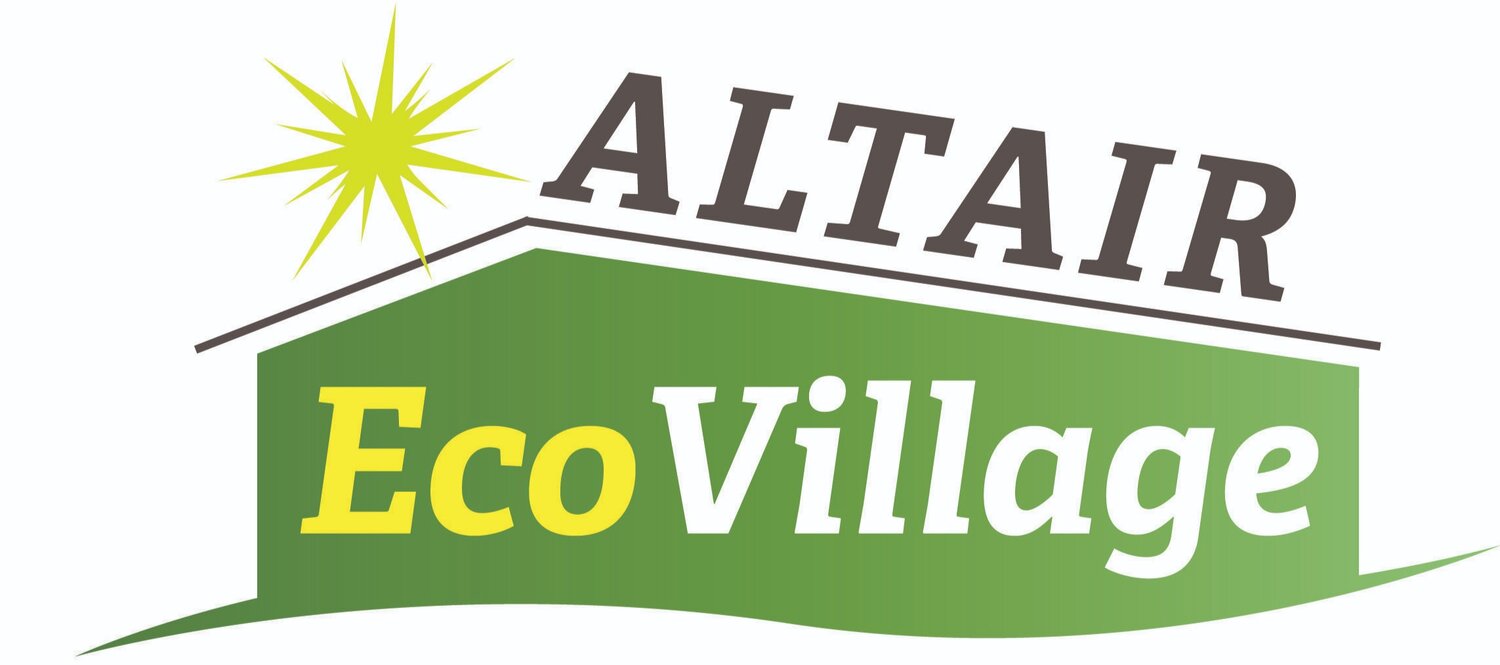June 4 Integrative SITES - Part II
/(Continued from last week)
At the Integrative SITES Workshop, Adam Supplee described how the communication process among professionals and stakeholders will be facilitated for the Altair project. It will utilize Google Drive, shared files, and hybrid meetings. Reports and design decisions will be logged throughout for general reference. This will enhance collaboration and also serve to document all that we’ll be accomplishing. The documentation will be submitted to USGBC to obtain our SITES credits. Next on the agenda was an introduction of some of the residential-prospective members of Altair and descriptions of the working teams (circles) they participate in—such as Community Life, the Common House, Hospitality, Electric Vehicles/Energy, Governance, Land/Buildings, Finance/Legal, and Healthy Living, among others. We then reviewed together with the sections of the SITES criteria in regard to performance goals…
SITE CONTEXT: SITES specifies a number of prerequisites that must be met. One, for example, requires limiting development on farmland. Our property has not been prime farmland, but to the extent that there has been any agricultural usage of the land at all (recently hay production), we might have to obtain easements in other local agricultural areas.
PRE-DESIGN ASSESSMENT AND PLANNING: As mentioned, SITES requires a project to use an integrative design process, i.e., extensive and ongoing collaboration and communication among professionals and stakeholders. In order to get our certification, we’ll have to document such. The recording of our Integrative SITES session will be part of that documentation, as well as reports from the Altair Development Circle. Pre-design site assessment should include things like mapping vegetation and soil protection zones, areas where we can build, areas that must be preserved, surveys of trees on the land, animal habitat, etc.
WATER MANAGEMENT: The SITES criteria set very high standards in regard to precipitation and storm water management. The wetlands on our property must be maintained. The balance between pervious and impervious land coverage must be considered.
SOIL AND VEGETATION LIFE-CYCLE: The criteria specify plant stewardship, control and management of invasives, optimization of biomass, and using vegetation to minimize building energy use (example: deploying deciduous trees for summer shading). Adam pointed out that a characteristic of our area of Pennsylvania is heavy clay soils, so a soil management plan, shared for consideration among all the professionals, will be critical. We’ll have to be careful to avoid over-compaction. Sara Wuerstle noted that it’s common to analyze the soil composition, and we’ll certainly be doing that—but we’ll do even more: we’ll be analyzing the soil biology—toward proactively developing a soil fertility program. The objective will be to promote systemic health without the need for chemical inputs.
MATERIALS SELECTION: SITES emphasizes a prioritization of sustainability criteria—for the buildings, of course, but, additionally, for all aspects of the development. Joel Bartlett observed that it’s not only ecologically advisable, but it also can save us money! So we’ll be reaching out to our manufacturers and suppliers to stress the importance of employing sustainable methodologies. By doing so we can influence them toward embracing a greener orientation in general.
HUMAN HEALTH AND WELL-BEING: Altair will be promoting healthy practices for the environment and also for the residents of our ecovillage. That means being cognizant of issues like walkability, social interaction, on-site food production, accessibility—and even our relationships with neighbors (for example: minimizing light pollution) and supporting the local economy.
CONSTRUCTION: SITES specifies stringent guidelines in regard to sustainable construction practices. We’ll be working with the contractors to limit pollution and soil compaction. In doing so our project will become an educational process for all involved. Sara explained how and why permaculture advises that soil remediation be addressed as soon as possible after construction.
OPERATIONS AND MAINTENANCE: While we do the up-front design work we’ll be needing to keep in mind how we’re going to take care of the site in perpetuity. This will require careful planning for sustainable maintenance, taking into consideration issues such as recycling/composting, smart lighting, integrative pest management, and energy usage. There’s a possibility that the deployment of solar panels on the top of the carports and on the roof of the Common House might be fully adequate to supply all the electricity needs of the ecovillage!
EDUCATION AND PERFORMANCE MONITORING: In addition to striving for our own best practices, Altair will be proactively reaching out to the broader community. In conjunction with the township, we’ll be fostering sustainability awareness and demonstrating the efficacy of green living. By doing so Altair could become an exemplary case study. Joel noted that our promotion of the KLID ordinance will benefit the whole township and beyond. He related how Rachael Griffith, Sustainability Coordinator with the Chester County Planning Commission, has said she’ll be looking forward to alerting other municipalities about the exemplary KLID and Altair objectives.
INNOVATION: It was suggested that Altair’s ambitions in regard to EV (Electric Vehicle) fleet management and an associated car- and ride-sharing programs could become the basis for a new SITES credit criteria. During the Q&A it was mentioned that we’ll be interested in helping the township address both vehicular and pedestrian traffic on Kimberton Road (wanting it to be as pedestrian-friendly as possible).
The morning wrapped up with a discussion of the pending SALDO (Subdivision and Land Development Ordinance) process, a presentation of the prospective site concept, an idea to apply for a PHARE (PA Housing Affordability Fund) grant, and the announcement about the public event, a “Meet and Greet” (plus site tour) on June 19.
Steve Welzer, for Altair EcoVillage

